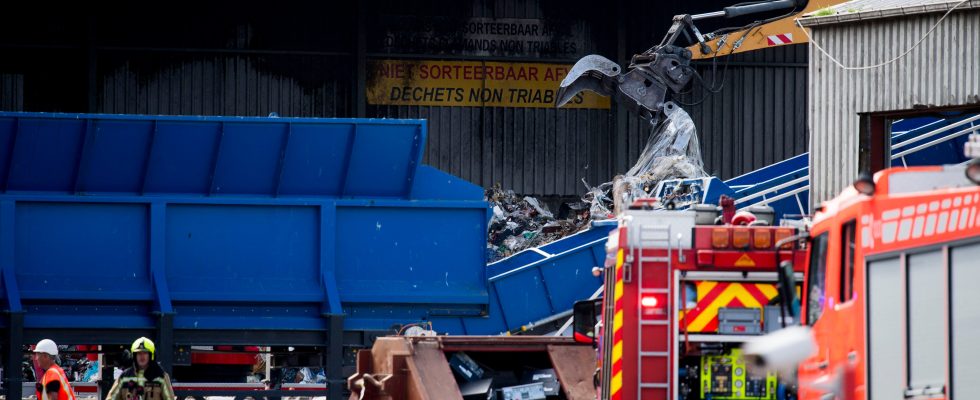The value of tomorrow is realized in partnership with Zonebourse.com
Renewi is a small group specializing in waste recycling, which carries out most of its activity in Benelux, where its roots allow it to hold around 30% of the market. British society visibly felt cramped on its island from the late 1990s, when it was still called Shanks. It then set its sights on the Belgian and Dutch markets via several acquisitions. The last and largest, Van Gansewinkel Groep, was finalized in 2016 for 482 million euros. Renewi is the result of the merger of the two groups, which have chosen London as their main listing place, contrary to the usual tax relocations.
This group of 6,700 people achieves a steadily growing annual turnover, which reached 1.65 billion pounds during the last vintage ended at the end of March. Nearly three-quarters of these revenues are generated by the collection and processing of professional waste, which is the driving force behind the company’s activity and profits. A second division includes glass processing, electronic products and municipal contracts. Finally, the third branch specializes in the treatment and recycling of complex waste, in particular contaminated soil, chemicals or ashes. What sets Renewi apart from a conventional waste collector is its transformative dimension. Nearly 64% of the products collected are recycled and reused, either as materials or as energy. The stated objective of management is to eventually bring this figure to 75%. With these activities in the air, the company can afford to communicate widely on its contribution to the circular economy.
A credible upturn trajectory
Despite its British flag, Renewi therefore generates approximately 90% of its activity and its results in Belgium and the Netherlands. The United Kingdom brings the balance, with France and Portugal, but in a marginal way. Financially, life has not been a long calm river since the merger, which took effect in 2017. The merger was not as simple as expected, the old household waste collection contracts in the United Kingdom were badly tied up and the subsidiary of soil treatment was faced with a regulatory moratorium in the Netherlands. Accounts have been riddled with charges related to these issues for years. These substantial additional costs, which are now all provisioned and in the process of being settled, continue to weigh on finances. The current financial year, which will end at the end of March 2024, will still bear the scars. We must therefore project ourselves on the next one to envisage a return to a positive cash flow. And on the fiscal year that will end in March 2026 to return to more normative performance. This improving trajectory is credible, since it is based on a roadmap defined by management that seems both prudent and realistic. The main lever for improving the accounts is based on the gradual disappearance of the worries of the past.
The company’s financial ratios are fairly typical of its situation. Thus the PER, the earnings multiple, is very low, since it is a discounted file because of its poor form. About nine times last year’s results and six times expected earnings in March 2026. Margins are modest, around 7% operating margin, but fairly consistent, a sign of good leverage. price fixing. The net debt is a little high, because the cash has been taken up by the problems accumulated over the past few years. However, its peak is in the past, at least if analysts’ projections are reliable. Renewi is therefore a bet on the standardization of an economic model which is based on a powerful underlying trend, the circular economy and the recycling of materials.
